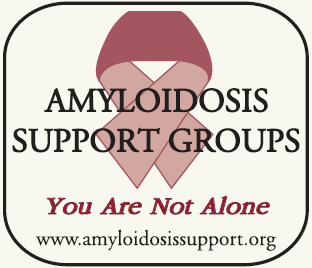Trusted Resources: Education
Scientific literature and patient education texts
Cardiac Amyloidosis: An Update on Pathophysiology, Diagnosis, and Treatment
source: Trends in Cardiovascular Medicine
year: 2018
authors: Siddiqi OK, Ruberg FL
summary/abstract:The amyloidoses are a group of systemic diseases characterized by organ deposition of misfolded protein fragments of diverse origins. The natural history of the disease, involvement of other organs, and treatment options vary significantly based on the protein of origin. In AL amyloidosis, amyloid protein is derived from immunoglobulin light chains, and most often involves the kidneys and the heart. ATTR amyloidosis is categorized as mutant or wild-type depending on the genetic sequence of the transthyretin (TTR) protein produced by the liver.
Wild-type ATTR amyloidosis mainly involves the heart, although the reported occurrence of bilateral carpal tunnel syndrome, spinal stenosis and biceps tendon rupture in these patients speaks to more generalized protein deposition. Mutant TTR is marked by cardiac and/or peripheral nervous system involvement. Cardiac involvement is associated with symptoms of heart failure, and dictates the clinical course of the disease.
Cardiac amyloidosis can be diagnosed noninvasively by echocardiography, cardiac MRI, or nuclear scintigraphy. Endomyocardial biopsy may be needed in the case of equivocal imaging findings or discordant data. Treatment is aimed at relieving congestive symptoms and targeting the underlying amyloidogenic process. This includes anti-plasma cell therapy in AL amyloidosis, and stabilization of the TTR tetramer or inhibition of TTR protein production in ATTR amyloidosis. Cardiac transplantation can be considered in highly selected patients in tandem with therapy aimed at suppressing the amyloidogenic process, and appears associated with durable long term survival.
organization: Boston Medical Center, USADOI: 10.1016/j.tcm.2017.07.004
read more full text
Related Content
-
Pharma Trial Information – ASG Webinar 1.25.24 – 8/9https://www.youtube.com/watch?v=A9g6r1PQ...
-
Fred Hutchinson Cancer Research CenterFred Hutch is at the forefront of develo...
-
Cardiac Amyloidosishttps://www.oneamyloidosisvoice.com/wp-c...
-
Wild-Type Transthyretin Cardiac Amyloidosis – Mayo Clinichttps://www.youtube.com/watch?v=RnWxzRD1...
-
Suzanne R. Hayman, MDSuzanne R. Hayman is a Consultant in the...
-
IMiDS, Alkylators & Anti-Fibril Drugs by Dr. Anita D’Souza – ASG Webinar – 2/9https://www.youtube.com/watch?v=vP4wvJq5...
-
How to Image Cardiac Amyloidosis: A Practical ApproachCardiac amyloidosis (CA) is one of the m...
To improve your experience on this site, we use cookies. This includes cookies essential for the basic functioning of our website, cookies for analytics purposes, and cookies enabling us to personalize site content. By clicking on 'Accept' or any content on this site, you agree that cookies can be placed. You may adjust your browser's cookie settings to suit your preferences.
More information
The cookie settings on this website are set to "allow cookies" to give you the best browsing experience possible. If you continue to use this website without changing your cookie settings or you click "Accept" below then you are consenting to this.
To improve your experience on this site, we use cookies. This includes cookies essential for the basic functioning of our website, cookies for analytics purposes, and cookies enabling us to personalize site content. By clicking on 'Accept' or any content on this site, you agree that cookies can be placed. You may adjust your browser's cookie settings to suit your preferences.
More information
The cookie settings on this website are set to "allow cookies" to give you the best browsing experience possible. If you continue to use this website without changing your cookie settings or you click "Accept" below then you are consenting to this.



 myBinder
myBinder




